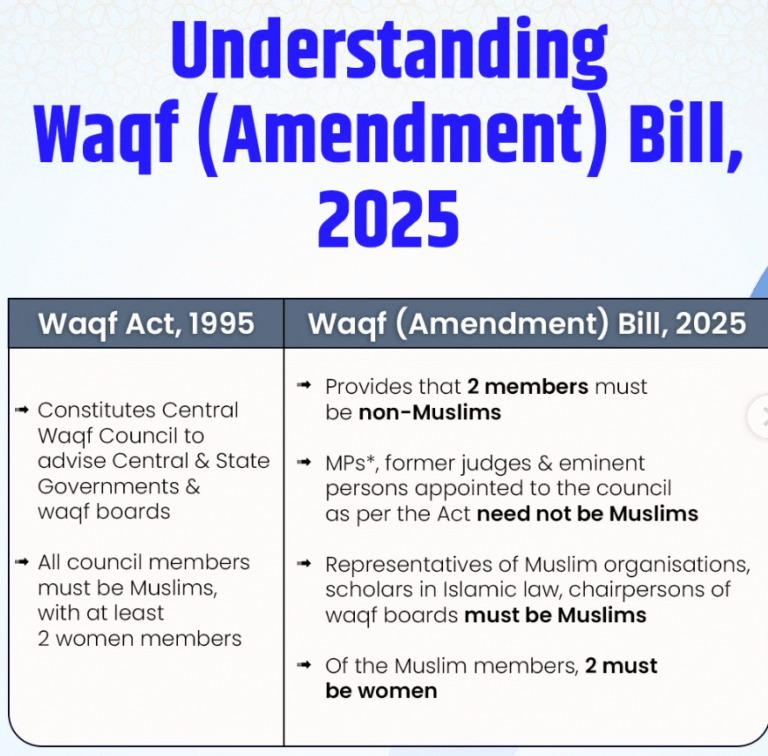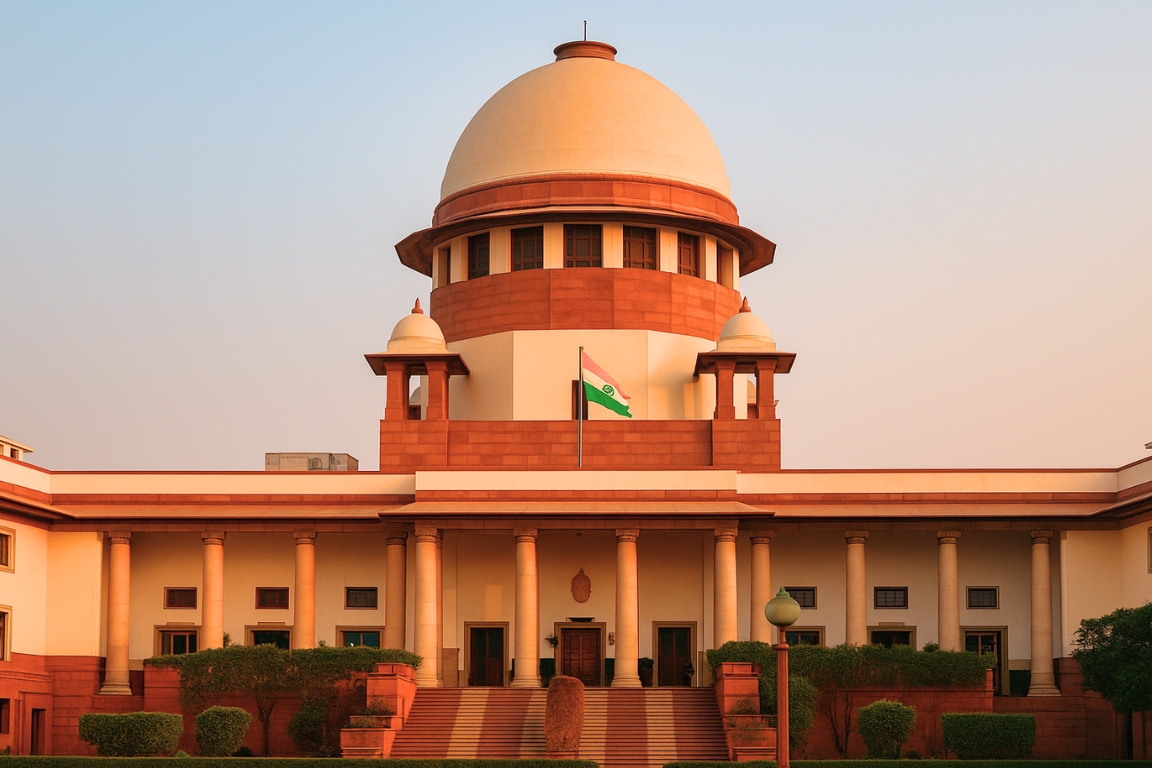The Supreme Court recently stayed key provisions of the Waqf (Amendment) Act, 2025, calling them prima facie arbitrary, while refusing to strike down the entire Act.
Background of the Issue
- The Waqf (Amendment) Act, 2025, introduced new rules for Waqf creation, management, and property disputes.
- Concerns were raised that some provisions were vague, arbitrary, and against natural justice, leading to multiple petitions in the Supreme Court.

Key Observations of the Supreme Court
- Laws made by Parliament are generally assumed to be valid because they serve public interest.
- But courts can still check and strike down parts that are unfair.
Five-Year Faith Rule
- The Act said a person must prove they practiced Islam for five years before creating a Waqf.
- SC said this is arbitrary since there is no clear way to verify it.
- Government must make a proper procedure before enforcing this rule.
Section 3C – Waqf Property Status
- The rule said Waqf loses its status if there is a doubt it belongs to the government.
- SC said this is unconstitutional; only courts can decide property ownership.
- Waqf property cannot be taken or changed in records until courts/tribunals decide.
Protection of Waqf Property:
- To avoid misuse, SC stopped Waqf managers from giving rights to others on disputed Waqf property until final court decisions.
Directions on Waqf Boards and Council
- Central Waqf Council: Not more than 4 non-Muslims out of 22 members.
- State Waqf Boards: Limited to 3 non-Muslims out of 11 members.
- CEO of State Boards: Should preferably be from the Muslim community.
On Registration of Waqfs
- Court upheld mandatory registration of Waqfs with a deed copy.
- Reasoned that if Waqfs were unregistered for decades despite earlier laws, they cannot now claim exemption.
Wider Significance
- Balances religious rights with secular governance and property law.
- Reinforces judicial oversight over property disputes, protecting both Waqf institutions and government assets.
- Prevents arbitrary dispossession while encouraging accountability in Waqf management.
Conclusion:
The judgment reflects the Supreme Court’s attempt to ensure fairness and constitutional balance—by protecting religious freedoms while stopping misuse of Waqf laws and maintaining the separation of powers.





